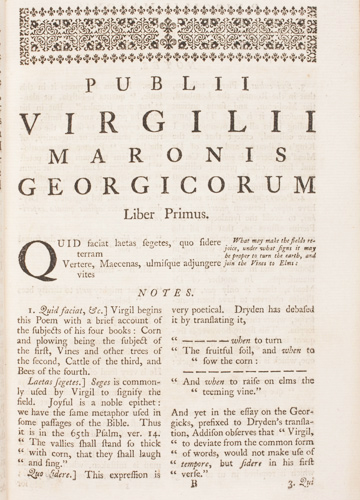Virgil’s Georgics, a poem composed around 29 BCE, is an ancient version of a farmer’s guidebook. The Georgics, from the ancient Greek georgos meaning ‘farmer’, was a poetic manual about farming animals and cultivating the land. The preface of this translation by John Martyn, published in 1746, claims husbandry to be ‘not only the most ancient, but also the most useful of the arts’. Martyn goes on to insist that the greatest heroes were just as skilled in farming as they were in battle.
A part of the poem is dedicated to the lives and characteristics of bees, in which Virgil places great esteem: ‘I shall lay before you the wonderful actions of these small animals, the bravery of their leaders, and the manners and employments [匽 of the whole state’ (4.1ff).
Virgil presents the beehive as an ideal community from which society can learn, and may be directly equating the orderly running of the hive to the Roman state under Augustus. Virgil begins the poem with a prayer to agricultural deities and to Augustus.

